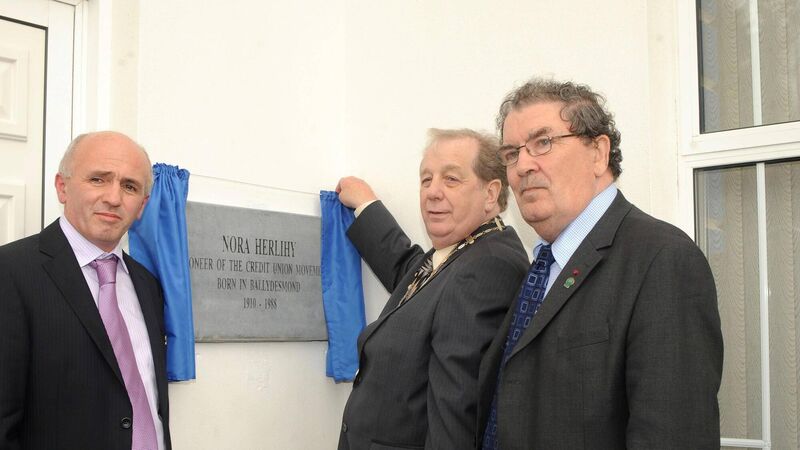Gerard Howlin: Credit union movement was the foundation of John Hume's outlook

Irish League of Credit Unions president Uel Adair unveiling a plaque in 2008 in Ballydesmond, Co Cork, the birthplace of the league founder Nora Herlihy, to mark its 50th anniversary, with Mick Long, Rathmore Credit Union, and, right, John Hume, former league president. Picture: Des Barry
"You're a mad young fella, nobody will pay you back" was the response to a 23-year-old John Hume setting up a credit union in Derry, the first in Northern Ireland. Four, however, agreed to help.
They emptied their pockets in the Roswell Hall and, with five pound one and nine pence, Derry Credit Union was founded.















